Storage
Latest

Google’s Pixel 4 will feature something called a ‘Pixel Neural Core’
Another day, another Pixel 4 leak. After a veritable deluge of feature reveals, including accessible Face ID, car crash detection, an updated Recorder app and touchless gestures, we now know its official specifications -- and they pretty much confirm earlier spec rumors that, like everything else about the phone, were also leaked ahead of the official Pixel 4 event.

Seagate's latest portable SSDs are wrapped in fabric and camo
How do you spice up an external drive when it's difficult to stand out based on specs alone? Make them look right at home clipped to your backpack. Seagate has introduced a line of One Touch SSDs covered in either fabric (if you prefer plain black or white) or Special Edition camo patterns. It's a simple trick, but it might do the job if you're tired of sterile-looking drives that scream "technology." They're very pocketable as well, at just under 3 inches long.
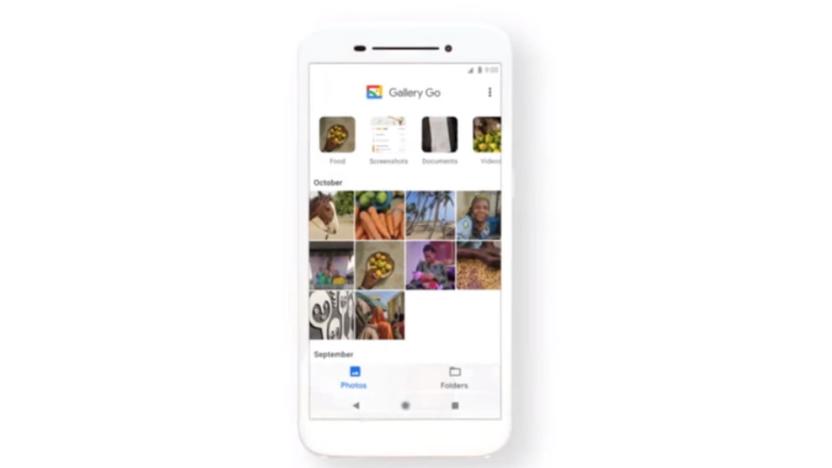
Google Gallery Go is a lightweight, offline Android photo manager
Google Photos is a great way to organize and store your photos, but it's a bit on the beefy side, taking up space and needing constant access to the cloud. So it's not ideal for people with mid-tier phones, or those who don't have a reliable data or internet connection. Enter Gallery Go, a lightweight photo gallery that boasts a lot of the features of Google Photos, and is designed to work offline.
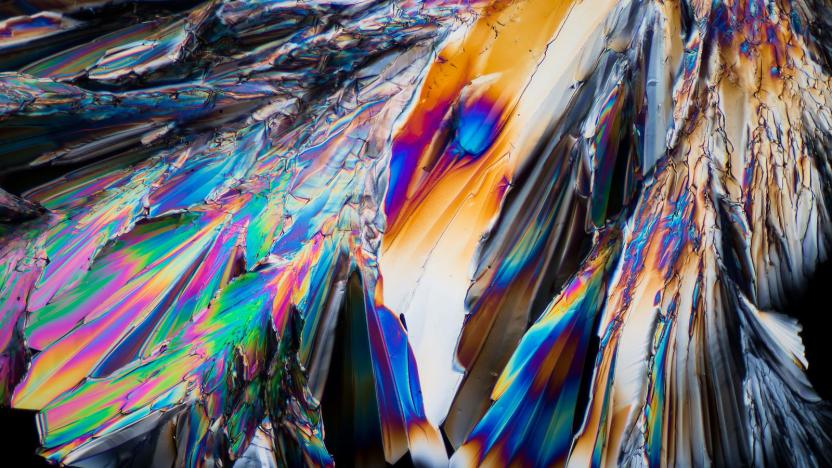
Scientists store data inside molecules that drive your metabolism
Never mind using DNA to store data -- there may be a simpler way to store info. Brown University scientists have shown that it's possible to store data in solutions of artificial metabolic molecules, such as amino acids and sugars. The presence or absence of a given molecule creates one bit of data, and the complexity of the mixture decides how many bits that mixture can hold. After that, it's a matter of placing thousands of mixtures on tiny metal plates as nanoscale droplets -- you use a mass spectrometer to decode the data once the droplets have dried.
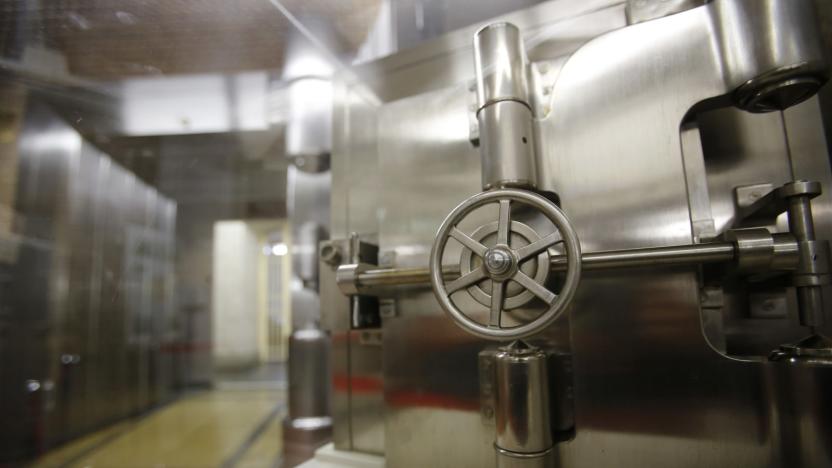
Microsoft beefs up security for your most important OneDrive files
Microsoft is adding extra layers of security to OneDrive for your most important files. It's setting up a protected section called OneDrive Personal Vault that requires another method of authentication to access it, such as a PIN, fingerprint, face scan, two-factor authentication code or Microsoft's Authenticator app.
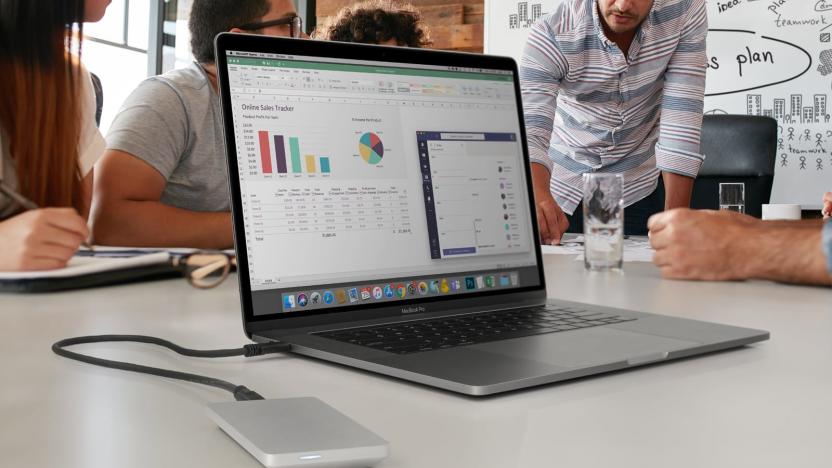
OWC claims its USB-C SSD is the fastest yet
OWC might have your back if you want the speediest external drive you can get without sacrificing too much in the way of portability or price. The company claims that its new Envoy Pro EX is the fastest USB-C SSD on the planet, with its NVMe-based storage offering transfer speeds as high as 980MB/s -- for context, even SanDisk's Extreme 900 Portable SSD peaks at 850MB/s in ideal conditions. It's a drive that could handle 4K video editing one moment and sit in your pocket the next.

Scientists make a lifelike robotic fish using multipurpose 'blood'
There's no question that robots have come a long way since their cold, clunky, cumbersome inception. Nowadays they're smart, agile and responsive -- but they're still missing the tactile, multipurpose elements that make living creatures flexible and autonomous. Until now. In a bid to make robots more lifelike, scientists have created a soft robotic lionfish and have pumped it full of life-giving "blood."
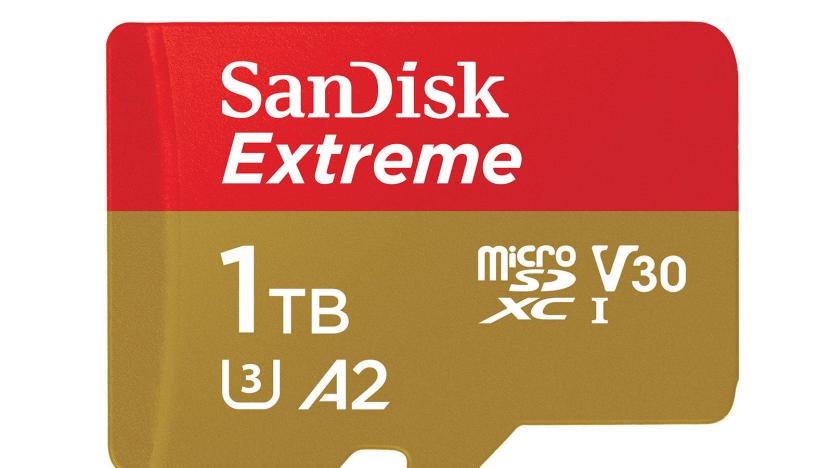
You can finally buy the first 1TB microSD card
Have you been salivating at the thought of stuffing a 1TB microSD card into your phone? You can finally act on that impulse. SanDisk has made the record-setting Extreme card available both through its own store and (when it's in stock) through Amazon, giving you a cavernous amount of space for your phone's media collection. It's a U3-rated card, too, so it shouldn't have trouble keeping up with your 4K video recordings.
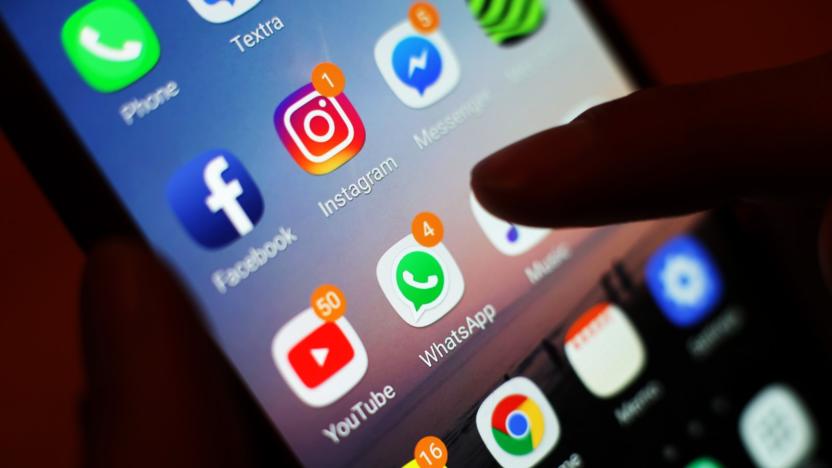
Google's Android app-shrinking tool rolls out to all developers
Google introduced the Android App Bundle last year, a publishing format designed to shrink the size of app installs. It's now out of beta and available to all developers, which means all apps now have the potential to be kinder to your phone in terms of storage and memory.

Tesla's Osaka station Powerpack is its largest storage system in Asia
Tesla has built another Powerpack system in record time, this time at Osaka train station in Japan, where it will be used as emergency backup and to reduce peak energy demand. According to the company on Twitter, the 42 Powerpack units will provide enough energy to safely move a train and its passengers for up to 30 minutes to the nearest station in the event of a power failure.

Dropbox limits free accounts to three linked devices
If you're used to linking Dropbox to every device you own, you might want to reach for your credit card. Liliputing has noticed that Dropbox quietly started limiting its free Basic tier to a maximum of three linked devices as of March. If that's too confining, you'll have to shell out for a $10 Plus or $20 Professional subscription. You can keep any links you've already established, but you won't get to add any more until you go below that three-device maximum.
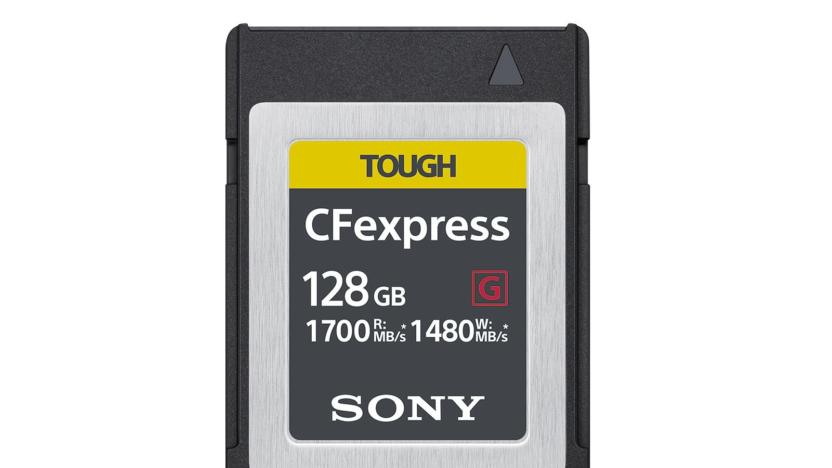
Sony's CFexpress cards will bring blistering speeds to cameras
Cameras are getting so fast now that it's hard for regular SD storage cards, even fancy UHS II models, to keep up. Sony has just announced that it's developing new cards using the all-new CFexpress tech that are up to the challenge. They can read and write data at speeds of 1,700 and 1,480 MB/s, respectively, blowing past every current type of camera storage. Several new cameras on the market, including Nikon's Z6/Z7 and the Panasonic S1/S1R, will support the cards.

GoPro Plus now offers unlimited uncompressed video storage
When GoPro launched Plus -- it's subscription service for cloud storage -- it was a modest offering. For $5 a month, you could store a bunch of your photos and videos online, access a library of music to use in your edits, and a get a 20 percent discount on accessories. Early last year, the company added a new benefit -- a no questions asked camera replacement scheme and bumped photo storage to unlimited. Today, the company extends that unlimited feature to video, and importantly at native resolution (i.e. 4K videos won't be compressed at all).

Samsung develops the first 1TB storage chip for phones
In the future, Samsung's phones will have a whopping one terabyte storage capacity... and that time might come sooner than you expect. The tech giant has started mass producing what it says is the industry's first one terabyte embedded Universal Flash Storage (eUFS) technology for smartphones. It will give the company's mobile devices PC-like storage without the need for large-capacity micoSD cards. It'll be incredibly useful if you use your phone to take tons of photos and HD videos -- Samsung says it's enough to store 260 10-minute videos in 4K UHD.

Seagate slapped a PlayStation logo on a hard drive to match your PS4
You've had the option of attaching external storage to the PS4 for a while. If you find the existing options just too gauche, though, you're in luck. Seagate is releasing an officially licensed Game Drive that brings 2TB of additional space to your PS4 while matching the aesthetics of the console. It's ultimately a standard portable USB drive with a PlayStation logo on top, but that's not necessarily a bad thing -- it's still an easy way to add extra room for games (roughly 50 more, Seagate said) or cart your library to a friend's place.
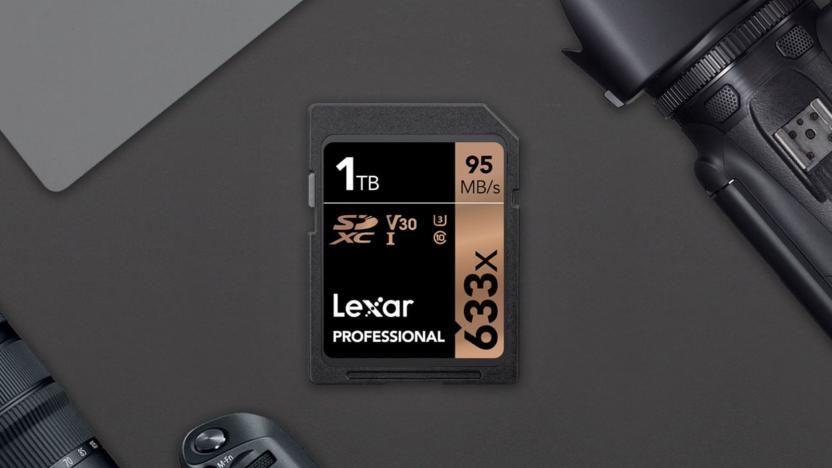
Lexar will sell the first ever 1TB SDXC card
Lexar has unveiled the first ever 1TB SDXC flash memory card for cameras that will actually go on sale to the public, the Professional 633x. It's a UHS-I rather than a much faster UHS-II model, but runs at the top limit for a UHS-I card at 95 MB/s (class 10). That should be fast enough for most cameras to capture 4K video (class V30) and a long burst of RAW photos.
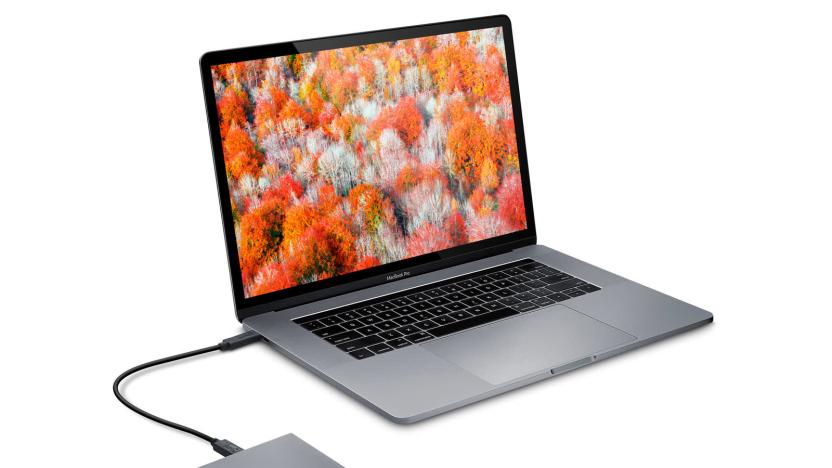
LaCie's chiseled 5TB USB drive aims to make storage stylish
LaCie (and its parent Seagate) is still determined to inject some style into the world of external hard drives -- thankfully, with some improved functionality as well. Its 2019 Mobile Drive touts a chiseled-looking "diamond cut" metal design that wouldn't look out of place next to a MacBook Pro (you can still use it with Windows PCs, of course). The real allure, though, is the raw capacity -- you can opt for a 5TB version if you're editing gobs of media on the road, and even the slim version packs 2TB.
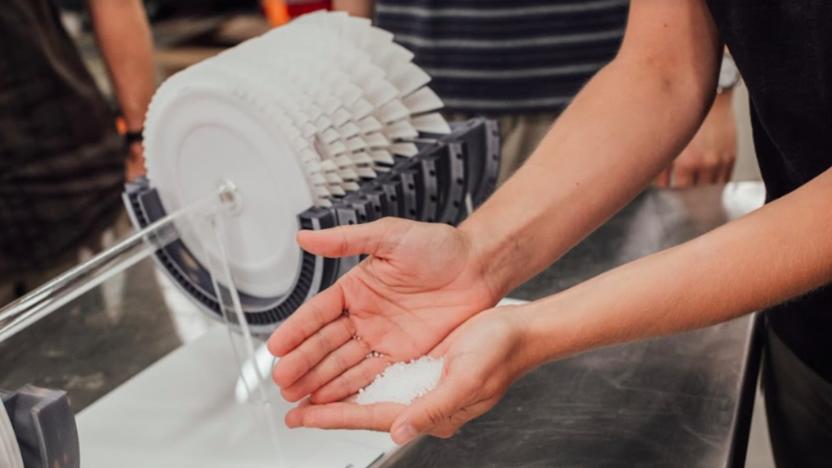
Alphabet's hot salt energy-storage project becomes its own company
Alphabet's X division has played host to a string of experimental ideas, and another one is spinning out as an independent business. Malta uses cheap, abundant materials including salt, anti-freeze and steel to store power at grid scale.

Samsung's 860 QVO brings multi-terabyte SSDs down to Earth
To date, buying a multi-terabyte solid-state drive has usually meant paying through the nose. It hasn't been uncommon to spend $1,000 or more to get a drive with capacity matching hard disks costing far less. That gap hasn't completely closed yet, but it's getting much narrower -- Samsung has unveiled its promised multi-terabyte SSD for the masses, the 860 QVO. The 2.5-inch SATA lineup uses quad-level cell (aka 4-bit) V-NAND memory to offer high capacities at prices that you wouldn't expect, at least not from a brand as big as Samsung.

Huawei's latest phones use proprietary storage cards for some reason
Huawei's Mate 20 phones bring some clever new features to the table, but there's one that you might not be so thrilled about: a proprietary storage format. The new handsets are the first to take NM Card, a Huawei-made design that offers the capacity and performance of microSD in a card the size of a Nano SIM. On the Mate 20 line, this promises flexibility. You can use one of the phone's two SIM slots as extra storage without the need for a dedicated microSD slot or an extra-long tray. Sounds great, right?





